Most leptin supplements don’t actually work…
Don’t worry though, there are still some supplements that can help you lose weight which we will talk about later but just keep that in the back of your mind for now.
Why don’t most leptin supplements work?
They almost always target the wrong imbalance.
By the time leptin levels are at an all-time high, your body has sustained many major hormone imbalances along the way.
Leptin levels don’t typically increase until 1 or more of the following imbalances already exist:
- Low free T3 or high reverse T3
- High insulin levels (AKA insulin resistance)
- Metabolic damage (slow or damaged metabolism)
By the time these imbalances exist in the body treatment is never as easy as just taking 1 pill or 1 supplement…
What is Leptin Resistance and why is it so hard to treat?
We are going to talk about what supplements you should consider taking, but first, we need to have a little discussion about Leptin.
What is leptin resistance and why is it causing so many problems in your body?
Leptin is probably one of the most important hormones in regulating your weight and metabolism.
It is a hormone secreted from your fat cells that regulate appetite and energy expenditure (1) in your hypothalamus.
In simple terms:
It tells your brain when to eat, and how many calories to burn and sets your body weight like the time on a clock.
But here’s the problem:
While scientists know that leptin is critical in controlling weight and important for weight loss, no one really knows how to treat it (2).
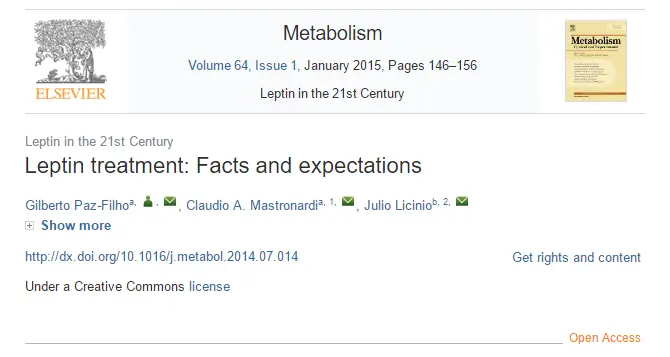
It’s a huge target for pharmaceutical companies and supplement companies, but most medications and supplements have fallen short (except a few).
That by itself is a big problem, but there’s an even bigger problem…
Most providers (Doctors, nutritionists, health coaches, etc.) don’t frequently check for leptin levels!
This puts patients with leptin resistance in a hard spot.
Most of them are left to do their own research trying whatever they can to lower their leptin levels.
Worse, some patients don’t even know they have leptin resistance because they haven’t even checked their leptin levels.
The other thing worth pointing out is that Leptin resistance is a serious problem.
After treating hundreds of weight loss-resistant patients, I can say that if you don’t focus on lowering your leptin levels it will be very difficult if not impossible to lose weight.
It is just that important.
Whenever I treat a patient with leptin levels > 10 and their primary goal is weight loss, then leptin becomes my top priority.
Understanding Hormone Imbalance and where Leptin fits in
Weight loss is not about counting calories or increasing the amount of energy you burn.
Losing weight is about fixing any hormone imbalances that exist in your body.
Why?
Because these hormones dictate where energy goes into your body and how much energy your body will burn.
One of the biggest mistakes you can make as a patient trying to lose weight is to reduce your calories and exercise more.
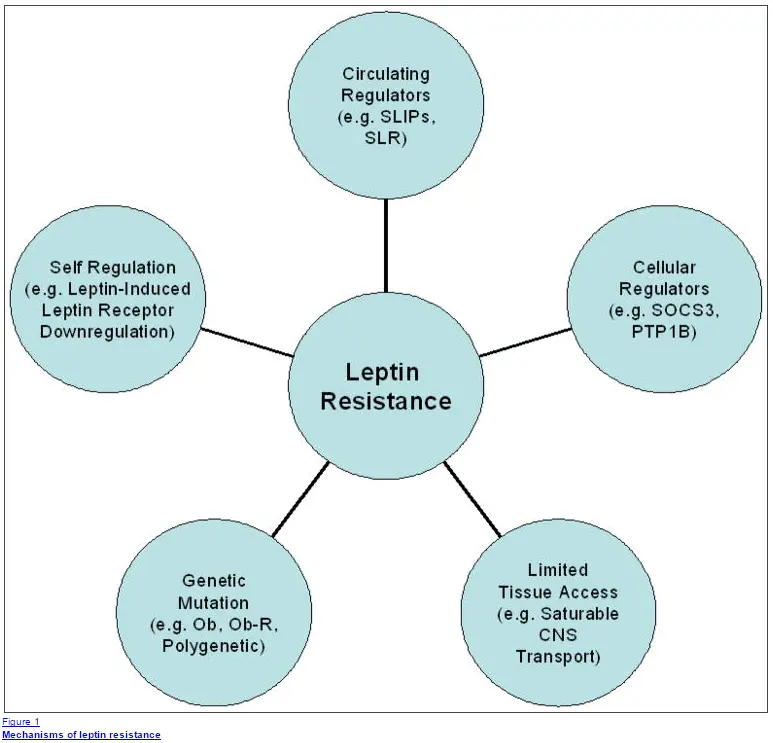
This is exactly what INCREASES leptin (3) levels in your body.
One of the causes of weight gain after rapid weight loss is these elevated leptin levels.
The recurrent weight loss, weight gain, and yo-yo dieting that many patients go through causes leptin resistance in the first place.
So how do you approach weight loss if you don’t focus on calories?
You look at the hormones that determine your metabolism, where calories go, where you store fat and you treat THOSE.
The three most important hormones involved in regulating weight gain include:
- Thyroid hormone
- Insulin
- Leptin
It’s worth pointing out that generally, high leptin levels occur in the later stages of hormone imbalance.
That means most people with leptin resistance will ALSO have high levels of fasting insulin and high levels of reverse T3 (and/or low levels of free T3).
By the time leptin levels become elevated the body is already in disarray, which means that treating the problem is more complex than just adding in a supplement or two.
Talk to any hypothyroid patient or patient with insulin resistance and you will know just how difficult it can be to lose weight unless you address the root cause.
In general, if you want to lose weight you need to address ALL of the hormone imbalances (not just leptin levels).
This is the strategy that I’ve used successfully with many patients and it’s the strategy I would recommend for you as well.
The good news is that there are many options for treating both thyroid resistance and insulin resistance compared to supplements targeted at leptin levels.
The Science of Lowering Leptin Levels
As I’ve mentioned previously there are really only a few supplements and nutrients that MIGHT help to lower leptin levels.
These supplements include:
- Glucosamine (4) and hexosamines (5)
- Zinc (6)
As you can see this list isn’t very long.
Fortunately, you can actually help to reduce leptin levels by focusing on supplements that target other hormones (which we will go over below).
But I want to focus on this for a second.
Most of the leptin supplements out there don’t even include these 2 nutrients.
You can see an example below:
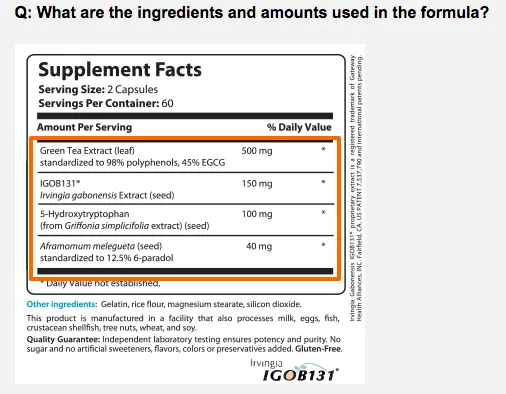
This is the ingredient list of a popular leptin supplement which doesn’t include any of the studied supplements that may actually reduce leptin levels.
This may explain why many of these supplements simply don’t work or have bad reviews.
Instead of focusing on the supplements targeted toward leptin itself, it’s better to focus on supplements targeted toward other hormone imbalances.
For example:
It has been shown that both insulin and leptin levels are involved in glucose homeostasis (7).
This is great because it gives us an opportunity to treat and lower leptin levels indirectly by treating insulin levels.
Do you see the benefit?
There are also more opportunities than just insulin levels.
For instance:
Both a lack of sleep and high stress contribute to the development of leptin resistance and the inability to lose weight.
So instead of taking a generic green tea supplement to promote weight loss, a better approach would be to focus on taking supplements that improve your sleep or reduce your cortisol (stress) levels.
Hopefully, this is making sense.
It’s a change in the traditional model of taking both supplements and medications, but currently, there just aren’t many great options for treating and lowering leptin levels.
If you do decide to seek out a “leptin-specific” supplement then make sure it has either/both zinc and glucosamine in some form.
I have had some luck with this supplement.
Oralvisc has been shown to help reduce leptin and other inflammatory cytokines (8) in patients with osteoarthritis (an inflammatory condition).
Even though several studies have shown it to be effective, you still want to make sure you combine it with other therapies and even supplements.
For instance:
I would recommend using BOTH fish oil and Oralvisc for the best results.
The only catch is that this combination of glycosaminoglycans (GAGs) and hyaluronic acid may NOT work for everyone.
Still, in a condition that can be as difficult to treat as leptin resistance, it may be worth a try.
As a general rule focus on the other (more treatable imbalances) which I will outline below.
Where your Focus should be: Insulin, Sex hormones, and Cortisol
Instead of trying to find the “one” supplement that will help you lose weight (it doesn’t work like that by the way) focus on a combination of supplements that target a similar pathway.
Using supplements like this can help with synergy and will improve your chances of fixing whatever it is you are trying to fix.
Very rarely does taking 1 supplement EVER work for anyone (with few exceptions like b12 shots).
Instead, I would recommend you find out what hormone imbalance you are dealing with and then target THAT pathway.
Most patients know they have hormone imbalances like estrogen dominance, hypothyroidism, or insulin resistance usually based on symptoms alone.
If you are unsure then use the guide below to help determine if you have an imbalance:
Testing For Hormonal Imbalances
| Test | Optimal Levels for Health | |
| Thyroid Deficiency | Blood: · TSH, Free T3, Free T4, Reverse T3, Thyroglobulin Antibodies, Thyroperoxidase Antibodies, Sex Hormone Binding Globulin (SHBG), Ferritin, TIBC, Serum Iron | TSH: < 2 Free T3: 1/3 of reference range Free T4: 1/3 of reference range Reverse T3: < 15 Thyroglobulin: <15 Thyroperoxidase: < 15 SHBG: · Male: 20-30 · Female: 70-80 Ferritin: 70-80 Serum Iron: Mid range TIBC: 35-38% |
| Estrogen Dominance | Urine: · Estrone, Estradiol, Estriol, 16-hydroxy Estrone, 4-hydroxy Estrone, and 2-hydroxy Estrone | Optimal levels highly variable, must be compared to Progesterone and in the setting of symptoms. Generally, 2-OH Estrone should be preferred over other pathways. |
| Progesterone Deficiency | Blood: · Progesterone Urine: · Pregnanediol | Check on days 19-22 of the menstrual cycle if menstruating. Progesterone levels should be higher than Estrogen levels during days 19-22 (see image below). |
| Insulin Resistance | Blood: Insulin (Fasting and 2 hours after meals), Hemoglobin A1c (Hgb A1c), Fasting blood sugar (FBS), Uric Acid, Fasting Triglycerides, Fasting HDL | Insulin: · Fasting: < 5 · 2 hours after meal: < 30 Hgb A1c: < 5.3 FBS: < 85 Uric Acid: < 5 Fasting trig: < 100 Fasting HDL: > 60 |
| Leptin Resistance | Blood: · Leptin levels · Thyroid studies (above) · Insulin tests (above) | Leptin: < 12 |
| Cortisol and Adrenal Fatigue | Urine: · Cortisol and Cortisone x4 Salivary: · Cortisol x4 Blood: · AM Cortisol (Not very accurate) | The range is dependent upon the person and is relative. If Cortisol levels are low = Late stage adrenal fatigue. If cortisol levels are high = Early stage adrenal fatigue. |
If you already know which medical conditions you have then just match them to the condition below.
For the best possible results use 3+ supplements in each category, using just 1-2 supplements will likely not result in much change.
If supplements do not help then you will probably need to consider using medications.
Supplements for Insulin resistance & Leptin Resistance
Considering that insulin and leptin resistance go hand-in-hand with one another this is a great first place to start.
Insulin is the hormone that sends signals to your body to grow your fat cells.
Insulin resistance is the hormone imbalance that occurs when insulin levels remain chronically elevated which leads to resistance at the cellular level which in turn makes insulin levels increase.
Insulin not only makes your fat cells grow but it is also damaging to other organs and tissues in your body mediating the majority of the damage of type II diabetes (9).
These supplements are designed to reduce insulin levels and/or sensitize your body to insulin.
In my experience treating with supplements alone will generally not reverse insulin resistance unless it is coupled with dietary changes and usually medications.
The best supplements for leptin resistance and insulin resistance:
- Berberine – Helps lower blood sugar levels by sensitizing the body to insulin and by lowering inflammation (10). Doses as high as 2,000mg per day may be needed to see results.
- Chromium – Helps sensitize cells to insulin (11). Consider using up to 1,000mcg per day.
- Alpha lipoic acid – This may improve peripheral neuropathy and is helpful in lowering both blood glucose and leptin levels (12). Doses as high as 600mg per day in sustained-release capsules tend to provide the best results.
- Myoinositol – This powerful sugar alcohol directly helps lower both insulin and leptin making it one of the few to do both. To get this benefit you will want to take at least 1,500mg daily for 6 months.
- Note: When it comes to insulin resistance I generally recommend using at least 3 supplements to help lower your levels. For an in-depth review of insulin resistance, please check out this post.
Supplements for Thyroid Resistance + Leptin Resistance
Much like insulin, it’s very rare that I see a patient with leptin resistance who doesn’t also have thyroid resistance.
Thyroid resistance (also like leptin resistance) can be tough to diagnose and even tougher to treat.
Thyroid resistance refers to a condition where blood levels of thyroid hormone may be “normal” but cellular levels of thyroid hormone are low as evidenced by low free T3 in the serum and/or high levels of reverse T3.
Unfortunately, in thyroid resistance, the TSH may be inappropriately low which makes uneducated patients and providers falsely believe that thyroid function is too high.
Instead, there is a deficiency at the cellular level and symptoms of hypothyroidism are still present.
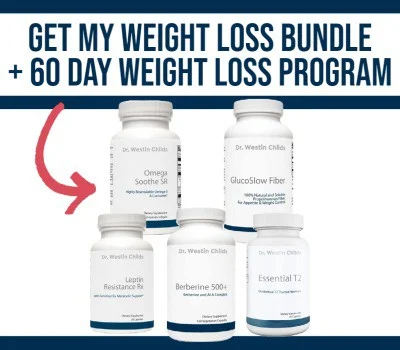
Studies have shown that as weight increases (13), leptin increases, and thyroid hormone activity decreases (14).
This usually manifests as a combination of low basal body temperature and weight gain even in the face of thyroid hormone replacement.
Because of the relationship between thyroid hormone and leptin levels, it is always critical to diagnose and treat any thyroid resistance.
One of the best ways to do this is to increase the conversion of T4 to T3. Doing this will necessarily decrease the conversion of T4 to reverse T3.
Fortunately, there are several nutrients that impact this conversion process and I will talk about those below.
If you have thyroid resistance and leptin resistance consider using these supplements to boost thyroid conversion:
- Zinc – Helps promote T4 to T3 conversion, and also acts as an anti-inflammatory agent and an antioxidant. Many patients are also deficient without knowing it. Dosing is usually around 5-15mg per day.
- Selenium – Helps promote T4 to T3 conversion, and may also help in reducing autoimmunity and inflammation in patients with Hashimoto’s. The ideal dosing is usually around 75 to 150mcg per day.
- Iron – Required for proper thyroid cellular function. Low symptoms mimic hypothyroidism. Iron must be in the “sweet” spot which means not too much and not too little, for more info see this post before supplementing.
- Note: Supplementing for thyroid function is complex and involves checking and evaluating multiple nutrients in the body. For more info on what factors alter thyroid function, thyroid hormone production, and conversion please see this post.
Supplements for High Cortisol & High Leptin
Cortisol is another hormone that has a nearly linear relationship with leptin.
Studies show (15) that as cortisol increases the production AND secretion of leptin in fat cells both increase as well.
This means that ignoring high cortisol levels will make losing weight and treating leptin resistance almost impossible.
The good news is that there are a couple of great options for lowering cortisol levels and balancing adrenal function but we need to talk about what I mean by high cortisol for a minute.
When most people hear the word high cortisol they immediately think of adrenal fatigue.
Adrenal fatigue is a vague term that is often used to describe the crushing fatigue that many patients feel when they are over-stressed.
What I am referring to here is NOT adrenal fatigue but the condition of hypercortisolism and I don’t mean Cushing’s syndrome.
In this case, I am referring to hypercortisolism as a condition where cortisol levels are too high but not outside of the reference range.
Instead of using the standard lab reference range, I am using a functional range for cortisol where “healthy” patients live.
So when it comes to cortisol how high is too high?
Functional serum cortisol levels (note this does not apply to salivary or urinary cortisol levels):
- Healthy range: 14-16 (Patients in this range may be normal or have symptoms of patients in the low and high range, generally serum levels are helpful if they are low or high)
- Low range: < 12 (these patients typically have the classic “adrenal fatigue” symptoms of crushing fatigue, the sensation of feeling wired but tired, difficulty with sleep, a racing mind, etc.)
- High range: > 18 (these patients present with insulin resistance, difficulty losing weight, and signs/symptoms of androgen excess)
Your 8 am cortisol should be somewhere between the 14-16 range (assuming no issues with cellular receptor resistance).
A cortisol level higher than 18, associated with a low free T3, a high reverse T3, and a high fasting serum leptin is very classic for these patients.
If you have a high 8 am cortisol (defined as > 18) then you should consider using these supplements:
- Phosphatidylserine – In doses as high as 800mg taken each day has been shown to attenuate serum cortisol levels (16). May need to be taken in even higher doses depending on the degree of elevation of cortisol. Serum levels > 30 should be evaluated for adrenal Cushing’s. Take at least 800mg per day if serum cortisol is > 18.
- Adrenal adaptogens – These may help balance adrenal function and lower cortisol levels (17). Can also subjectively help improve energy levels and promote normal sleep patterns.
- Note: If supplementing for high cortisol levels use the combination of both phosphatidylserine and adrenal adaptogens for best results. Unfortunately, there aren’t many proven supplements that can LOWER adrenal levels, and even fewer medications.
Supplements to Improve Sleep and Help Lower Leptin
Pretty much everyone knows that sleep is important (mostly because they feel terrible if they don’t get enough of it) but what you probably don’t understand is just how important it can be.
Lack of sleep is actually a huge reason that patients develop but also potentiates leptin resistance.
It’s so important to treat that if you do everything else listed above but avoid not getting enough sleep you will NOT clear your leptin resistance completely.
It will act as a handicap and limit your weight loss.
But why is sleep so important?
Lack of sleep has been shown to alter blood sugar homeostasis (18) and lead to weight gain (19), in fact, multiple studies have shown this, but how does it alter leptin levels?
It turns out that lack of sleep directly alters cellular resistance to leptin levels. So it may not increase leptin levels but it certainly causes and potentiates it.
In addition, the lack of sleep alters both leptin and ghrelin levels which causes an increase in appetite.
Basically, your body is put into a situation where it believes that you don’t have enough food available and it increases hormones to make you crave those foods.
The increase in food eaten and the direct impact on leptin resistance leads to significant weight gain (20).
This association between lack of sleep and weight gain is so important that I’ve included it in the list of treatments along with hormone imbalances like thyroid and insulin resistance.
If you are serious about treating and reversing your leptin resistance then you need to make getting high-quality sleep a priority.
That means getting at least 8 hours of uninterrupted sleep each and every night.
Even if you “feel” like you can function on less, it still may be destroying your body from a metabolic standpoint and severely limiting your ability to lose weight.
Fortunately, there are some supplements you can take to improve the depth and quality of your sleep but they may not work for every situation.
Hormone imbalances (menopause and estrogen deficiency), bladder issues (urinary frequency/urgency/incontinence), neurological issues (restless leg), and mood disorders (anxiety/depression) can limit your ability to get restful sleep and therefore will limit your weight loss efforts.
We aren’t going to talk about the specific treatment of each of these, but even taking some of the supplements below can help break through the lack of sleep associated with some of the conditions above.
Supplements to take to improve depth and quality of sleep (these supplements are listed from least aggressive to most aggressive depending on how poor your sleep is):
- 5 HTP: This is a gentle way to promote healthy sleep and is especially helpful if your lack of sleep is due to mood-related issues (anxiety/depression/etc.). Start with 100mg taken 30 minutes before bedtime but may need to increase up to 200mg per day.
- Melatonin: May help promote regular circadian rhythm and is especially helpful for people who travel to different time zones frequently or who have a disordered sleep schedule. Start with 1-3mg and increase the dose as necessary. I have found that many patients are deficient in melatonin when I check them via urinary excretion.
- GABA + Serotonin potentiators: These supplements act by enhancing the effects of both serotonin and GABA neurotransmitters. Both of these supplements can help slow down the brain and induce delta wave production to help increase the depth of sleep, they work in tandem with melatonin as a powerful sleep aid. Use 1 capsule per night.
- Note: Start with the least aggressive options first and move to more aggressive supplements as necessary. Don’t be scared to use these supplements if you are unable to get enough sleep in any other way. The benefits of 8 hours of sleep each night will be of huge benefit to your body metabolically and help with weight loss. Also, realize that this list is not comprehensive but should help you get started.
Combining Medications + Supplements to Crush High Leptin Levels
What if you’ve tried supplements, changes in diet, and added in exercise, and still aren’t losing weight or lowering your leptin levels?
Because leptin resistance can be so difficult to treat I generally recommend that patients “layer” treatments on top of each other to enhance results.
What do I mean?
Generally, the addition of multiple therapies has a multiplicative effect on leptin levels than an additive one.
Meaning that the addition of medications and supplements will always be more powerful than just using one by itself.
On my patients, I almost always use the combination of both, especially since I seem to see very leptin-resistant patients.
Luckily there are a few medications that can help lower leptin levels but will require an open-minded doctor to prescribe these medications on your behalf.
It’s also worth pointing out that many of these medications are considered “off-label” for the treatment of leptin resistance.
There really aren’t any FDA-approved medications to treat leptin resistance right now, but that may change in the future.
Having said that there are studies showing that certain medications CAN help.
Medications to combine with supplements to help leptin resistance:
- GLP-1 agonists: These medications have been shown to both lower leptin levels, help with weight loss (21), and attenuate the rise in leptin levels associated with rapid weight loss.
- Testosterone (Bioidentical): The replacement of testosterone helps significantly to lower leptin levels (22) (leptin and testosterone have an inverse relationship). The lower your testosterone is the higher your leptin is. This provides an interesting opportunity for BOTH males and females to help lower leptin levels. This might also explain why men generally have profound weight loss when testosterone replacement therapy is started.
- Insulin-lowering medications: Only certain anti-diabetic medications help lower and reverse insulin resistance but the addition of these medications may help with weight loss and help to reverse insulin resistance as well (23).
- T3 thyroid hormone: The special use of T3 thyroid hormone can help lower reverse T3, help improve body temperature and therefore basal metabolic rate (24), and will help reduce the symptoms associated with leptin resistance (fatigue, weight gain, etc.). High doses may be needed depending on the level of cellular resistance. You can find more info on T3 here.
- Note: The addition of these medications will require a prescription and generally the help of a provider who understands and is willing to work with you. Many of these medications and doses are not well known and will, therefore, require some knowledge on your part.
Recap & Final Thoughts
To wrap it up let me say this:
Supplements CAN have a profound impact on helping to lower and treat leptin resistance but they must be used in the correct way.
The correct way is to target known and abnormal hormone imbalances and target supplements at those pathways.
Trying to take a supplement targeting “leptin” is not likely to work and is more of a gimmick than anything else (at least right now).
The combination and layering of multiple therapies provide the best results when treating leptin levels so consider using both supplements and medications for the best results.
At the end of the day just realize that treating and reversing leptin can be difficult but NOT impossible, it can be done and I’ve done it a number of times successfully so don’t give up!
Now it’s your turn:
Have you taken supplements for leptin resistance?
Have they worked for you? Why or why not?
Leave your questions or comments below!
Scientific References
#1. https://www.ncbi.nlm.nih.gov/pubmed/14726256
#2. http://www.sciencedirect.com/science/article/pii/S0026049514002340
#3. https://www.ncbi.nlm.nih.gov/pmc/articles/PMC2967652/
#4. https://www.ncbi.nlm.nih.gov/pubmed/22476244
#5. https://www.ncbi.nlm.nih.gov/pubmed/21130299
#6. https://www.ncbi.nlm.nih.gov/pubmed/17028377
#7. https://www.ncbi.nlm.nih.gov/pmc/articles/PMC3602983/
#8. https://www.ncbi.nlm.nih.gov/pubmed/24899570
#9. https://www.ncbi.nlm.nih.gov/pubmed/16929378
#10. https://www.ncbi.nlm.nih.gov/pubmed/26027825
#11. https://www.ncbi.nlm.nih.gov/pubmed/15208835
#12. https://www.ncbi.nlm.nih.gov/pubmed/15913551
#13. https://www.ncbi.nlm.nih.gov/pmc/articles/PMC3608008/
#14. https://www.ncbi.nlm.nih.gov/pmc/articles/PMC377492/
#15. https://www.ncbi.nlm.nih.gov/pubmed/11824503
#16. https://www.ncbi.nlm.nih.gov/pubmed/16869708
#17. https://www.ncbi.nlm.nih.gov/pmc/articles/PMC3155223/
#18. https://www.ncbi.nlm.nih.gov/pmc/articles/PMC3632337/
#19. https://www.ncbi.nlm.nih.gov/pmc/articles/PMC1991337/
#20. https://www.ncbi.nlm.nih.gov/pmc/articles/PMC4394987/
#21. https://www.ncbi.nlm.nih.gov/pmc/articles/PMC4320650/
#22. https://www.ncbi.nlm.nih.gov/pubmed/9302400
#23. https://www.ncbi.nlm.nih.gov/pubmed/16505235
#24. https://www.ncbi.nlm.nih.gov/pmc/articles/PMC1763034/
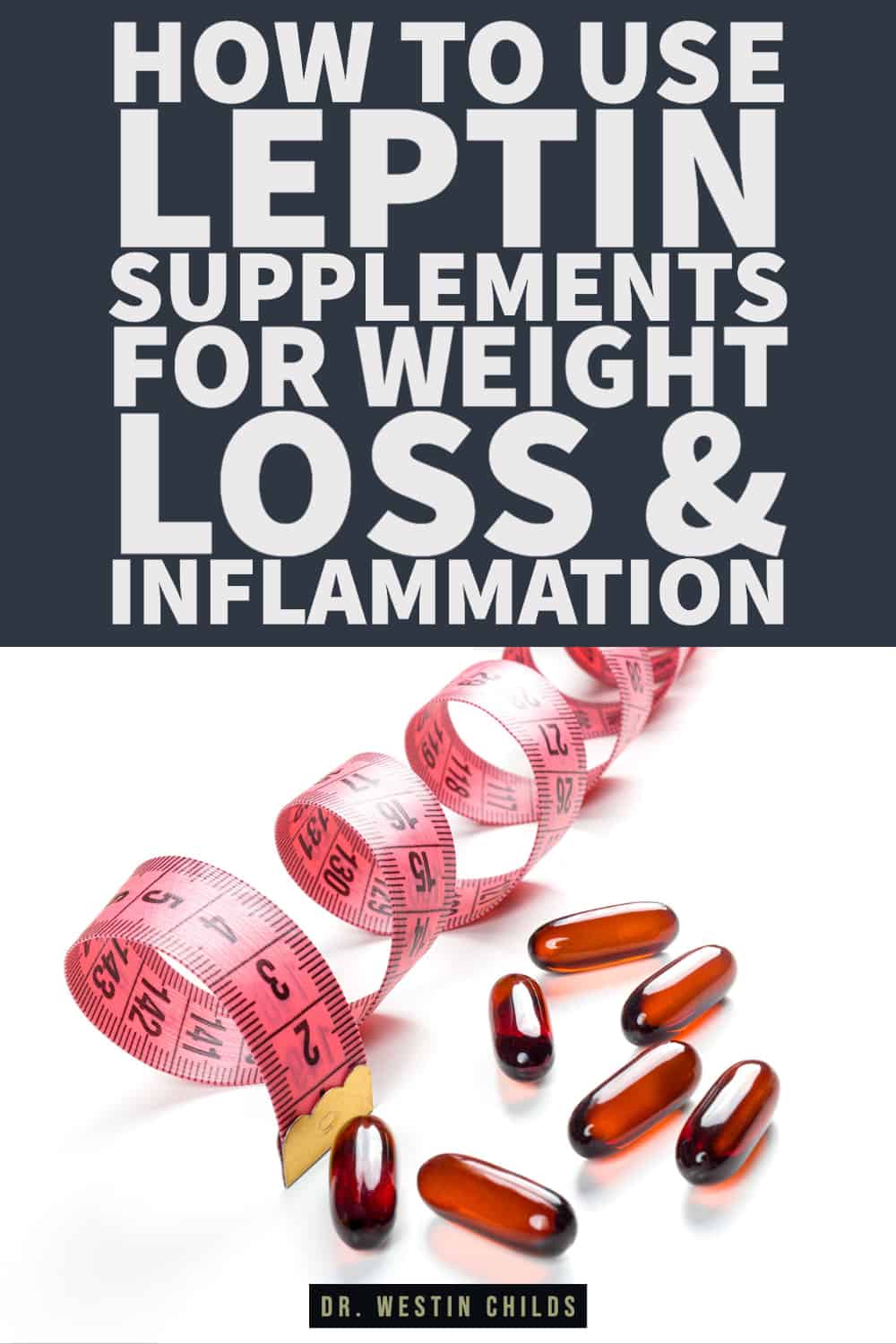
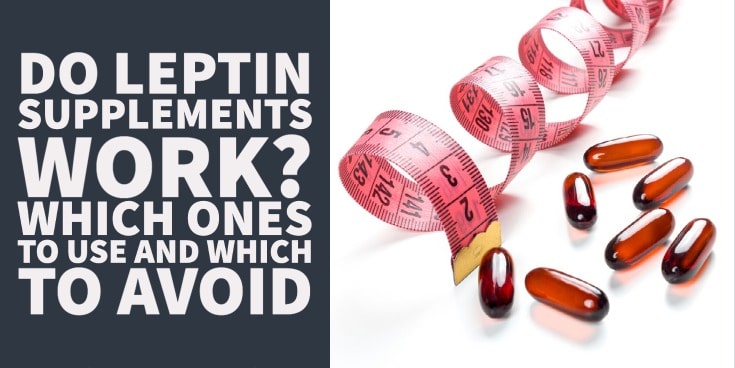


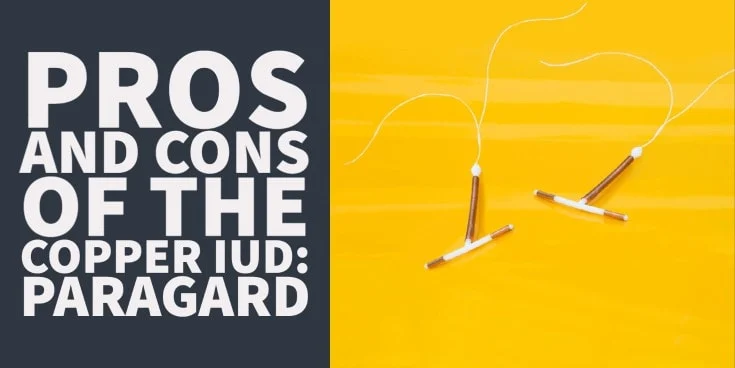




Dr Childs,
Are GLP-1 Agonists FDA approved for weight loss only for obesity without a diabetes diagnosis ? If so ,how does it not cause hypoglycemia in non diabetic persons?
Hey Tammy,
GLP-1 agonists are approved only for the treatment of type II diabetes.
Where can you buy WP Thyroid Med. I have a friend in California trying to buy for me. My friend can’t find WP THYROID. Who manufacturs this Med?
Thanks
Dr. Childs, when are you taking new patients? I contacted your office via e-mail and was informed you’ll be taking patients in the next year. Is this correct?
Thanks
Hey Kaye,
Thanks for reaching out. Currently we don’t have a date on when that will happen but if/when it does I will notify my email list.
Hi. I find this article fascinating. My RT3 levels were tested at 18 back in November and I will be getting retested again soon. I have Hashimatos and I need to get back on Thyroid medication if I want to have a successful pregnancy. I was on Levothyroxine for a few years and was able to carry my son successfully. And around he was turning 2 the meds stopped working, in the sense I was in range for TSH levels for my physician but I would get anxiety attacks about an hour or so after taking my meds. I would get brain fog while driving and have a difficult time concentrating. The symptoms went away after I stopped taking Levo. Fast forward a year and a half, I got on WP Throid on the lowest dose (1/2 grain) and the symptoms of the Levothyroxine returned and I started developing food allergies for food that I was never allergic to. I suspect maybe the MCT oil, one of the binders in WP could of triggered the allergies. I read a research study that explains how MCT oil can trigger certain allergies.
Anyways my current doctor didn’t really have any answers of why I experienced these symptoms while on a T4 med only and a T3 & T4 medication. I suspect I am going through RT3 which might explain my sensitivity to thyroid medication. I’m trying to find answers so I can get myself back on track.
Can you elaborate more on the glucosamine & hexsomaine. Is there a particular supplement that combines these two together or is hexsomaine a chemical process that occurs in your body while taking glucosamine?
I don’t know if you will see this but for my hypothyroidism I do all natural. I take iodine, Vit B1 and selenium. Since doing this my thyroid is its normal range. I pray that this helps. You. God bless
Hi Kim,
The all-natural route is pretty much always a good idea to try. Even if it doesn’t help 100% manage your thyroid disease, you will have done no harm in the process and in the best-case scenario may have helped a lot.
Hey Doc,
I find your articles most informative and I really appreciate you sharing the news! I do however have a question about this whole Leptin thing.
My level is at 76, which is sky high, I do have Hashimotos, Insulin resistance and on the cusp of Thyroid resistance(.19 as related to your scale). My functional medicine doc has me on a compounded levothyroxine/T3 mix and it seems to be helping with some of my issues. I’ve already asked her to increase the T3 portion of the mix for the next compound. So, now onto my question- the low/no carb, higher fat and moderate protein diet intake is not optimally working as she has now described me as being a “hyper fat absorber” and want’s me to cut the fat back. So much for going Keto. Do you have a modification to your Leptin diet protocol that will fit within my body’s stupid methylation/absorption process? Thanks in advance! 🙂
You need to do the AIP Paleo way of eating, you will be amazed.
I’m not a huge fan of the AIP diet for several reasons. Before you use it I would recommend that you read this article to see the downsides of that particular diet: https://www.restartmed.com/aip-diet/
Mimi: can you elaborate on being a hyper fat absorber? Another poster made a comment about having a genetic mutation that also made her a hyper fat absorber I have been coming through doctor Childs Web posts to try to find that comment. The woman said she had a genetic mutation I feel that that person is me also I always do better on a very low fat moderate protein moderate clean carb I was at my fittest consuming about 18% fat 40% protein and 32% carbs most of those carbs were in the form of sweet potatoes rice and vegetables with a slightly higher carb content the only grains I 8 was oatmeal that was it and even then add a 1/2 cup A-day. I would be intrested to trade some information with you
If you know the specific SNP’s involved please let me know because I haven’t run into any.
I read an article recently that said a study showed Alzheimer’s patients treated with leptin showed dramatic improvement in brain function and Lower levels of leptin are linked to the disease. Is there a good leptin supplement out there??! My sweet papa was recently diagnosed and could really use it! TIA!
I’m so confused and frustrated about leptin. The only thing I have been able to find after hours of searching is advice on how to lower leptin, but once you’ve lost significant weight and all of the extra fat cells your body has added in order to make you fat are empty, you don’t have ENOUGH leptin, and hence get the same symptoms as leptin resistance from have too much: based on the very little information I’ve found about maintaining weight loss rather than achieving weight loss, I’ve learned that the only way that sufficient leptin is secreted is when all of your fat cells are full, including the extra ones that were added to make you obese. And since those fat cells never die off completely, they just hang around, empty, disallowing enough leptin to be secreted until you finally fill them up again (become as fat as were). Am I wrong? Why is nobody discussing this? Without a way to rectify this, all weight loss is pointless! I KNOW because I’ve just experienced this exact phenomenon. I’m incredibly frustrated and don’t know where to look to find answers…
I am with you . totally confused. it is like every where I look each thing I find contradicts the other . This is so crazy !
I am also confused about this too. I want to lose weight and then maintain. But if taking a supplement to suppress Leptin how are the levels maintained once you’ve lost the weight? Restartmed.com any answers on this?
Yes exactly. I find myself constantly hungry, no matter what I do I am still hungry and I am really normal weight and have never been overweight my whole life.I already gained some weight and it is unconfortable. I guess I have too little leptin. What can I do about it without gaining even more weight?
Hello i’m Maria from Australia, and was wondering if this helps with someone who’s got Hashimotos and going through Menopause,I have tried everything and with no success… i honestly don’t know what else to do.
Thankyou
Dr. Childs- Thank you for writing this article and debunking much of what is out there. I have been trying the keto diet for the last two weeks to become more insulin sensitive and lose body fat, as I was diabetic in both pregnancies and although I am not overweight (134lbs ad 5’3″) I still have high fasting glucose. I believed this was what was hurting my fat loss efforts. I have tried lots of lifestyle changes and at this point I would like to gain some momentum with a bit of fat loss to encourage myself, however I now believe I am also most likely leptin resistant as well due to my history and the fact that I have been diagnosed with and treated for hypothyroidism by MDs since age 13. I only take 30mg of armour thyroid per day and it has been fairly stable most my life. I am now 40. I know that taking my iron supplement can hinder the performance of my thyroid med. Is it the same with the zinc? I would like to begin adding 50mg of zinc and glucosamine to my regimen. Should I take these at night as well? Thank you for your help!!
Hi Jen,
You’re welcome!
Zinc shouldn’t impact thyroid absorption to the same degree that iron does but you generally want to take them apart anyway just to be safe. Generally, Zinc and glucosamine, if taken together, shouldn’t interfere with your thyroid medication so long as they aren’t taken at the same time as your medication.
What about leptin resistance, low progesterone, with early satiety (but still rapid weight:2 pds usually a day)? Would B6 and L-methylfolate/Folate help in addition to what you’ve instructed here?
Hi David,
If it’s that severe then you will probably need more aggressive treatment. You can learn more here: https://www.restartmed.com/leptin-resistance-thyroid-resistance/
Hi Dr. Childs,
Can you please clarify for me… I’m a bit confused…
I have read if you want to lose weight you have to increase Leptin levels but you say you need to decrease Leptin levels?
Am I reading into this all wrong?
Please help
Regards
Sara
Hi Sara,
Both statements are true which is why you are probably confused. High leptin is required for weight loss, but high leptin also causes leptin resistance which blocks weight loss. You can learn more about how to manage your levels here: https://www.restartmed.com/how-to-diagnose-leptin-resistance/
Hi there. Is it safe to take t3 if you have a low-end TSH? F4 and F3 are normal. RT3 dominant.
Hi Jana,
It’s not quite that simple, it depends on what caused the high rT3 and a number of other important factors which can be determined based on a personal history.
Dr. Childs,
I have hypothyroidism as do both my daughters (32, 24). I was diagnosed by a wonderful Doctor who studied under Dr. Broda Barnes. He simplified the process so well, diagnosed outside the very inefficient blood test parameters and devoted his life to understanding the thyroid. All three of us have suffered since he stopped practicing. We seen numerous doctors over the years, most who always want to start at the beginning with their own discoveries and always either miss or under diagnose.
I am uncertain where you are located, but if you have any doctors that you would recommend in the Orange County Area, I would greatly appreciate it.
Great article.
So very helpful and informative.
Would like to read more.
Thank you Dr. Childs.
Dean
Hi Dr Childs, if I am taking thyroxine i.e T4, do I still need iodine? I thought the conversion of T4 to T3 with its drop of 1 molecule of iodine should provide enough iodine.
Thanks Sue
Hi Sue,
I think you are perhaps confusing two separate processes? Iodine is not involved in the T4 to T3 conversion process but it is required for the creation of both T4 and T3 thyroid hormone in the thyroid gland. In short, you would still benefit from taking iodine even if you are taking thyroid medication (of any type).
Zinc gives me headaches. Magnesium causes issues as well. Guess I’m out of luck on those.